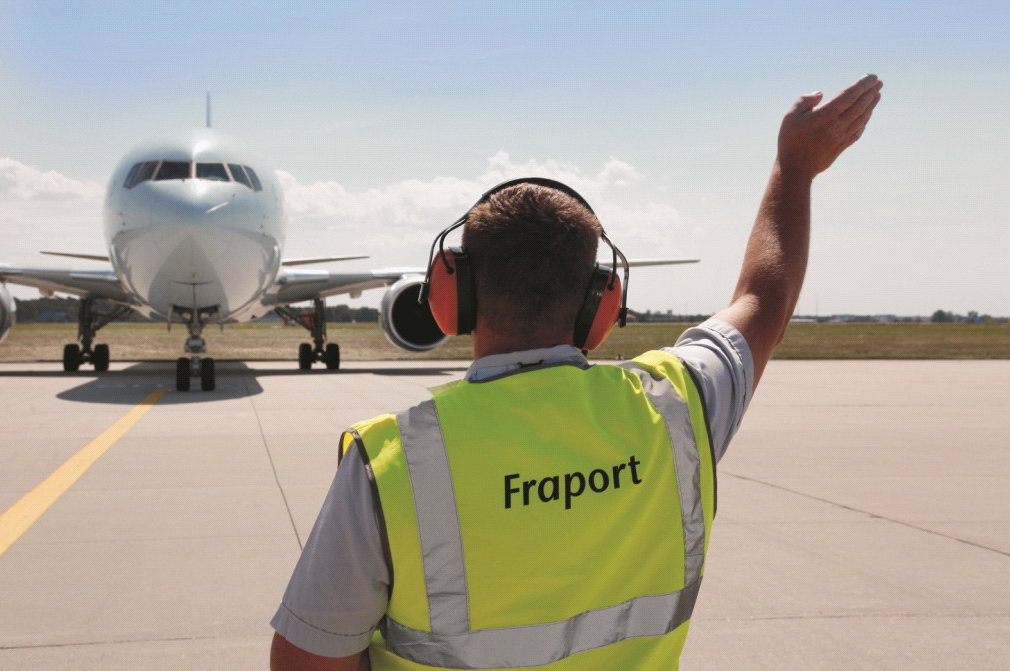Fraport plans massive job cuts
08 / 06 / 2020

Source: Fraport AG
Airport operator and ground handler Fraport AG is planning extensive job cuts due to the economic impact of the corona virus pandemic, reports Air Cargo News sister title DVZ.
According to people familiar with the events, up to 3,000 jobs are to be cut. This corresponds to just under 14% of the total workforce of approximately 22,000 people.
Fraport did not want to make any specific statements, but conceded that it would have to reduce personnel expenses in the future and “adjust the number of employees to the forecast lower annual traffic volume”.
According to information provided, the group management informed the works council about its plans on May 28.
On the same day, Stefan Schulte, chief executive of the airport operator, informed the employees of the Group, which is listed on the MDax stock index, by video message.
“We expect traffic volumes in 2023 — i.e. post-coronavirus — to be about 15% to 20% lower than in 2019,” Schulte said according to the written version of the video message, which DVZ obtained.
This development of the traffic volume means “that we have to reduce our material and equipment expenses, but also our personnel expenses accordingly”.
Jobs in ground handling services on the scratch list
According to Schulte, the aim is therefore to reduce staff by 15% to 20% in the so-called directly traffic-dependent areas in line with the expected decline in traffic volume.
These measures primarily affect the Group’s Ground Handling segment, which according to the 2019 Annual Report employs 9,236 people. A good 1,800 jobs could therefore be lost in this segment alone.
Ground handling is one of the Group’s four central segments. It includes ground handling services, which range from loading, baggage and passenger services to mail and baggage transport and cargo handling at Frankfurt Airport.
The ground handling segment also includes the provision of the central infrastructure, particularly the baggage handling system, as well as the Group companies FraGround and FraCareS, among others.
Last year, the Ground Handling segment generated revenue of €707m. The division’s personnel expenses amount to €468m and the cost of materials to €58m, so that the total cost share is almost 75%.
According to Schulte, the reduction in personnel in all other areas that are not directly traffic-related will be 30%. This will affect positions in the Group’s administration as well as in logistics and support functions.
Schulte cited fixed costs such as depreciation and interest as the reasons for the disproportionately high percentage of staff reductions in these areas, citing depreciation and interest rates that would not fall in line with traffic but would increase significantly, for example due to the increase in debt. According to Schulte, the goal is to keep Fraport viable in the long term and to establish a competitive Frankfurt Airport.
Frankfurt Airport has difficult years ahead
In the current year, Schulte expects 30 to 40% of the traffic volume compared to times before the outbreak of the pandemic.
For the coming year, the chief executive of the airport operator expects “not much more than 50% of traffic either”. This is the phase that the airport has to bridge until the pandemic is over, Schulte said.
In addition, there was the question of how the Group should be positioned after the end of the health crisis. The Fraport boss does not believe that air traffic will continue to follow pre-corona times.
“Some business customers will remain in virtual conferences; some private customers will not be able to afford travel because we will have fewer airlines, we will have higher ticket prices. We will have much more intense competition,” said Schulte.
Fraport has to adapt to this business environment today, Schulte told the Fraport employees. Therefore, the question is “what structures do we need after that, where we naturally expect growth again, but cannot have 15 or 20 percent too much expenditure in the long term,” said Schulte. “For this reason, we have started consultations with the works council and have informed them.“














